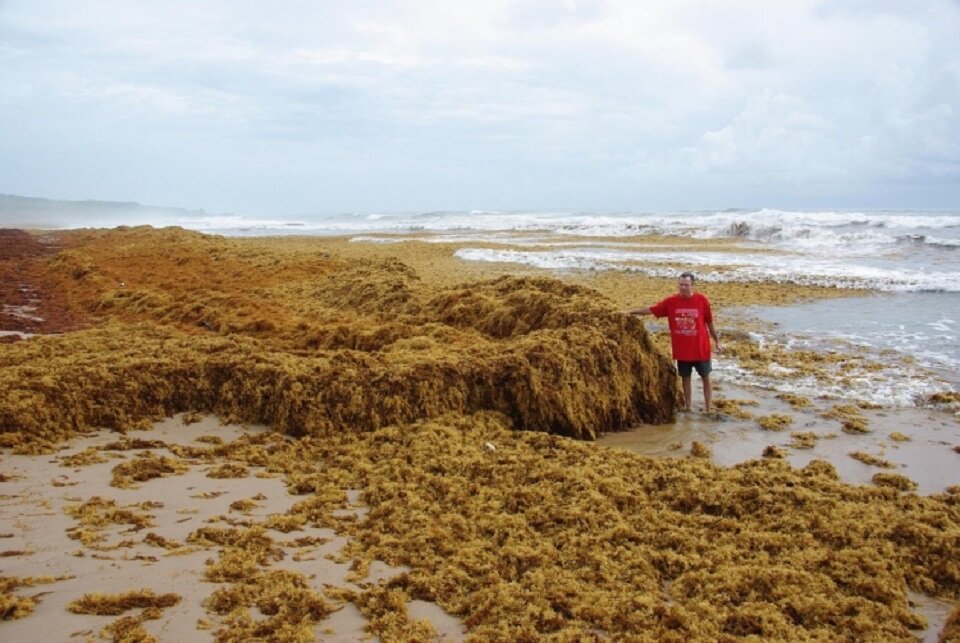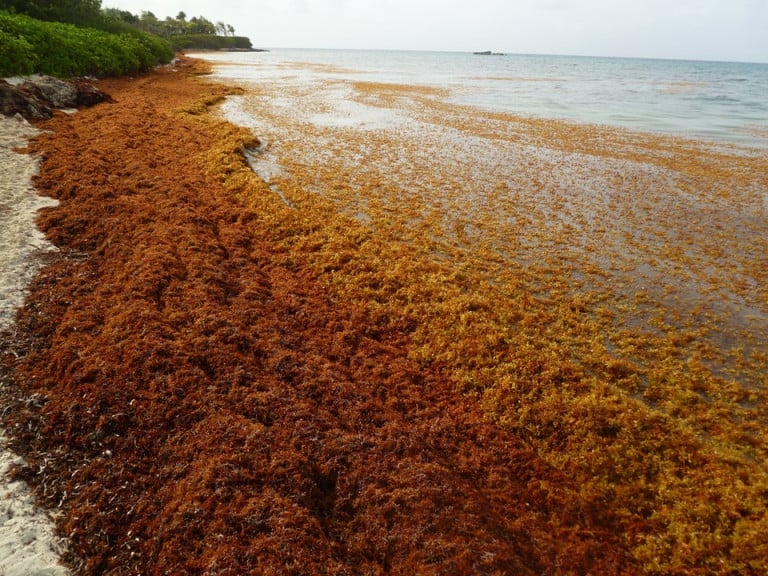Hello!
Seaweed Sedan
 Mountains of brown, sludgy sargassum, an invasive species of seaweed, have rendered popular beaches in the Caribbean into an unsightly mess.
Mountains of brown, sludgy sargassum, an invasive species of seaweed, have rendered popular beaches in the Caribbean into an unsightly mess.
The situation has become so dire that Barbados' prime minister Mia Mottley declared the invasion a national emergency in 2018.
But there could be a silver lining, the BBC reports: scientists say sargassum could be a lucrative source of biogas, turning the fibrous species into a fuel that can power converted combustion engine cars. A group of Caribbean scientists recently launched the first-ever vehicles converted to run on the stuff — a creative endeavor that turns a dire environmental crisis into a golden opportunity.
Also read: Middle school student accidentally discovers groundbreaking new cancer-fighting compound
Biogas Boon
The team at the University of the West Indies (UWI) in Barbados developed a conversion kit that can turn a conventional gas-powered car into one that runs on the seaweed product for just $2,500.
"Tourism has suffered a lot from the seaweed; hotels have been spending millions on tackling it," UWI lecturer and renewable energy expert Legena Henry told the BBC.
The team combined rum distillery wastewater with sargassum inside a bioreactor and found that it produced plenty of usable biogas.
"Within just two weeks we got pretty good results," UWI student Brittney McKenzie, who was tasked with collecting the seaweed, told the broadcaster. "It was turning into something even bigger than we initially thought."
 Sargassum has become a major problem, threatening not just local endangered wildlife but even human health due to the hydrogen sulfide it releases as it decomposes. Climate change is also allowing its population to explode, covering many Caribbean beaches entirely.
Sargassum has become a major problem, threatening not just local endangered wildlife but even human health due to the hydrogen sulfide it releases as it decomposes. Climate change is also allowing its population to explode, covering many Caribbean beaches entirely.
"By repurposing it in vehicles you protect tourism and prevent people from inhaling it," biologist Shamika Spencer, who worked on the project, told the BBC. "When we scale up to fuel more vehicles it will require a very large volume."
But the resulting sargassum-based biofuel won't be a magic fix for a growing environmental crisis.
"My goal is to help build up this region," Henry added. "We are now setting up a four-car pilot to demonstrate real-life working prototypes to convince funders that this is workable and scalable."
Thank you!
Join us on social media!
See you!






